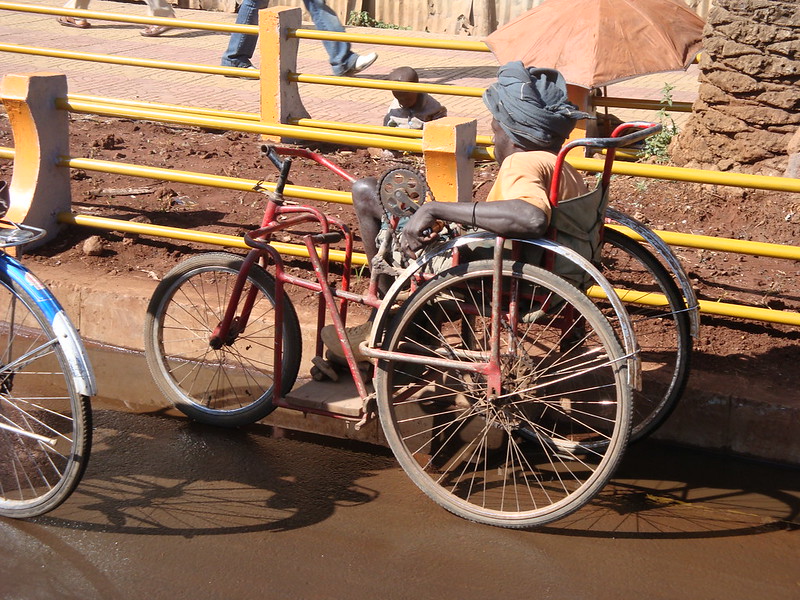Photo: Lucy Horodny, AusAID
Merga Yadesa (@MergaYadesa)
Coordinator for Regional and International Engagement
Office of the Chief Commissioner
A human rights defender (HRD) is a term used to describe people who, individually or with others, act to promote or protect human rights in a peaceful manner (OHCHR, “About human rights defenders”). HRDs can be of any gender, age, or background. To be a human rights defender, a person can act to address any human right (or rights) on behalf of individuals or groups. Human rights defenders seek the promotion and protection of civil and political rights as well as the promotion, protection and realization of economic, social and cultural rights.
HRDs are key agents of social change in a given country as they actively contribute to strengthening national capacity to ensure the implementation of international and regional human rights standards. HRDs have a positive, important, and legitimate role in contributing to the realization of human rights at the local, national, regional, and international levels.
The United Nations Declaration on the Right and Responsibility of Individuals, Groups, and Organs of Society to Promote and Protect Universally Recognized Human Rights and Fundamental Freedoms (UN Declaration on Human Rights Defenders), adopted by the General Assembly in 1998, recognized the significant role played by HRDs. At the regional level, the African Commission on Human and Peoples’ Rights (ACHPR) has also recognized the crucial role played by HRDs and called on governments to promote, protect and give full effect to the UN Declaration on Human Rights Defenders and to take all necessary measures to ensure the protection of HRDs in its Resolution (ACHPR.Res.69(XXXV)03) of 2004, ACHPR.Res.119 (XXXXII)07, and ACHPR.Res.196(L)11. During its 65th Ordinary Session held in October/November 2019, the ACHPR decided to develop an African Declaration on the Promotion of the Role of Human Rights Defenders and their Protection in Africa (ACHPR/Res.432(LXV)2019).
From 10 to 12 October 2018, at the 13th International Conference of the Global Alliance of National Human Rights Institutions (GANHRI) which took place in Marrakech, Morocco under the theme of: “Expanding the civic space and promoting and protecting human rights defenders, with a specific focus on women: The role of national human rights institutions”, National Human Rights Institutions (NHRIs) discussed issues related to the protection of HRDs and adopted the Marrakech Declaration. In this Declaration, NHRIs expressed their deep concern about reports on the increasing number of physical attacks against HRDs. They also noted that women human rights defenders (WHRDs) may face additional gender-specific discrimination and violence, not only from State agents but also from non-state actors.
The Marrakech Declaration sets out commitments by NHRIs aimed at ensuring NHRIs consistently and robustly respond to the situation of HRDs. It calls upon NHRIs to intensify their work on the area of promotion and protection of the rights of HRDs as well as to strengthen their cooperation and partnerships with HRDs.
In Ethiopia, since 2018, there have been significant legal reforms aimed at promoting a safe and enabling environment for the work of HRDs. This includes the adoption of Proclamation No. 1113/2019 – Organizations of Civil Societies; repeal of the previous Anti-Terrorism Proclamation and replacing it with Proclamation No. 1176/2020 and enactment of new media law, Proclamation No. 1238/2021, which created favourable conditions for the work of HRDs.
Despite these positive legislative developments, there are ongoing human rights concerns which affect the safety of HRDs in Ethiopia including physical attacks and arbitrary arrests. The Ethiopian Human Rights Commission (EHRC) continues to monitor the situation of HRDs and collaborate with CSOs for the effective implementation of the Marrakech Declaration to enhance protection of HRDs in Ethiopia.
